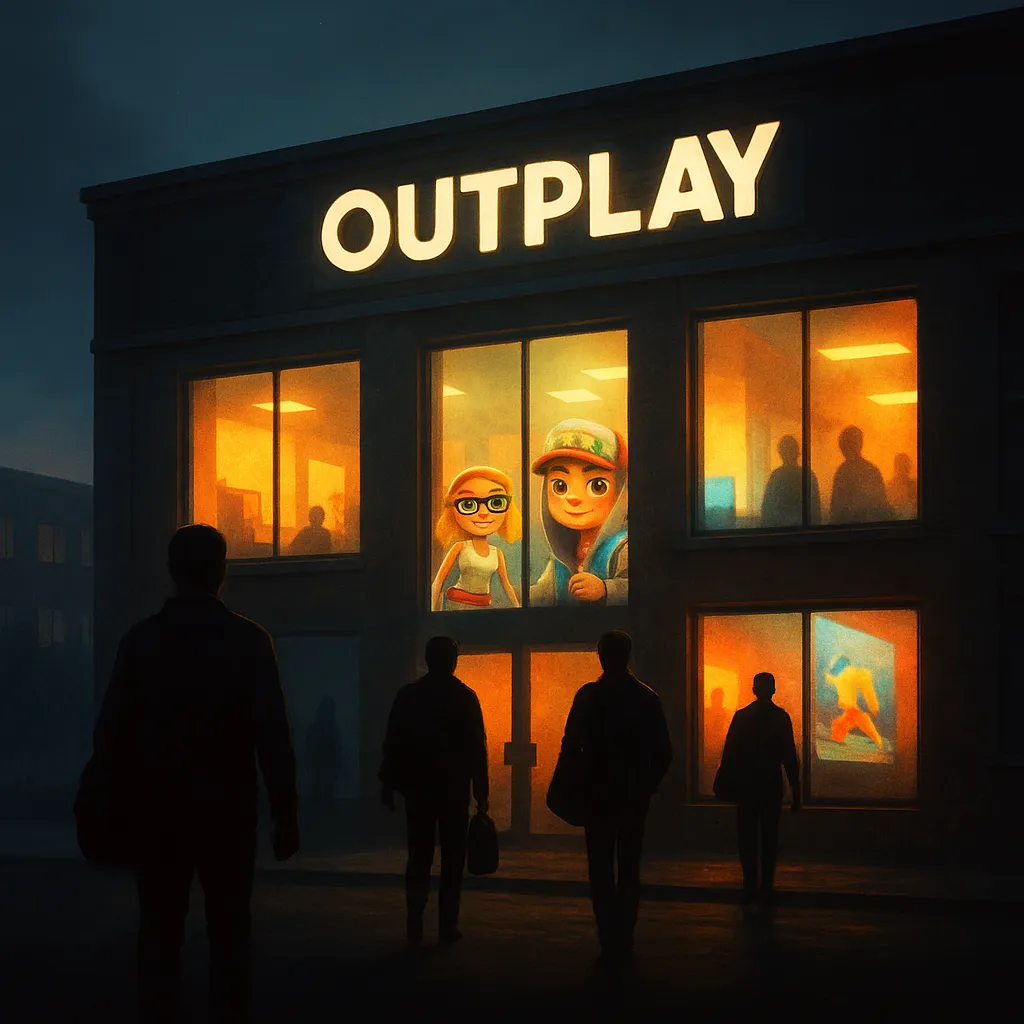The mobile gaming world continues to shift under the weight of post-pandemic industry corrections. The latest studio to feel the pressure is Outplay Entertainment, the Dundee-based developer behind Subway Surfers Blast and Angry Birds Pop, which recently laid off 21 employees as part of a major operational realignment.
While this news may not be surprising in a climate where job cuts have become an all-too-common headline, it’s still a stark reminder of how studios — even ones with over 160 million downloads under their belt — are adapting in real time to survive.
A Strategic Pivot, Not a Panic Move
The news broke via a statement from CEO Douglas Hare, sent to MobileGamer.biz, where he acknowledged the layoffs and explained the studio’s reasoning. According to Hare, this decision was made “to align our operations with current business realities and to support a strategic shift toward partnering with publishers for future game releases.”
That last part is key. Rather than continuing to handle everything in-house — from development to distribution — Outplay plans to collaborate more directly with external publishers. This could mean outsourcing marketing, monetization, or even co-developing titles. The goal? Leaner operations, lower risk, and potentially broader reach for future releases.
Hare was also quick to stress that the move wasn’t made lightly, stating, “We are incredibly grateful to the talented individuals affected, many of whom have made lasting contributions to our games and culture. We are doing everything we can to support them through this transition.”
Outplay’s Rise: From Dundee to 160 Million Downloads
Founded in 2010, Outplay has spent over a decade carving out a space as one of the largest independent mobile game studios in the UK. Based in Dundee, Scotland — a city with a growing reputation as a game development hub — the company gained traction with casual-friendly mobile hits that emphasized colorful visuals, easy-to-pick-up gameplay, and strong IP collaborations.
Their portfolio includes collaborations with massive franchises. Subway Surfers Blast is a spin-off of one of the most-downloaded mobile games ever. Angry Birds Pop, another successful title, tapped into Rovio’s iconic bird-slinging brand. Altogether, Outplay’s titles have racked up over 160 million downloads, making them a recognizable name in casual mobile gaming.
But big download numbers don’t always mean big margins — especially in a mobile market that has become increasingly pay-to-win, data-driven, and algorithmically optimized.
A Global Trend: Layoffs Across the Industry
Outplay’s layoffs aren’t happening in isolation. They’re part of a broader trend that has swept through the gaming industry over the past year. Developers large and small are feeling the sting of what’s often euphemistically referred to as “economic headwinds.”
Since late 2023, we’ve seen layoffs from:
- People Can Fly
- Electronic Arts (EA)
- Niantic
- Playtime Studios
- Meta
- Mighty Yell
- Devolver Digital
- PlaySide
- Embracer Group
- Cyan Worlds
What’s driving this wave? It’s a complicated cocktail. Many studios ramped up hiring and investment during the pandemic, banking on long-term growth in user engagement. But with player behavior normalizing and funding tightening, those earlier bets haven’t always paid off. Now, studios are recalibrating — often by cutting staff and focusing on core business models.
In this context, Outplay’s shift toward publisher partnerships is strategic. It signals a move to reduce internal overhead while maintaining development velocity through collaborative projects.
The Human Cost: Behind Every Number Is a Name
It’s easy to gloss over job cuts with phrases like “realignment” or “operational strategy.” But 21 people losing their jobs — especially in a midsize studio — is significant. These were designers, producers, QA testers, marketing staff, and others who helped bring games to life.
Hare’s statement, while corporate in tone, made space to acknowledge this: “We are doing everything we can to support them.” What that means in practice (severance, referrals, transition help) remains unclear, but transparency and accountability matter — especially in a tight-knit industry.
What’s Next for Outplay?
For now, Outplay appears to be narrowing its focus. By working more closely with publishers, the studio may be able to:
- Shift financial risk to partners
- Tap into larger marketing budgets
- Access broader user acquisition pipelines
- Free up internal resources for pure development
In theory, this allows them to stay nimble and competitive — especially in a crowded mobile market dominated by giants like Supercell, King, and Zynga. However, the challenge will be maintaining creative independence and studio culture while operating within publishing frameworks.
As more mobile developers explore this hybrid model — part indie, part partner-driven — Outplay’s next steps will be watched closely.
A Reflection of Industry-Wide Instability
What we’re seeing with Outplay is not an isolated incident but part of a broader industry reckoning. The mobile space is maturing. User acquisition costs are soaring. Privacy regulations (like Apple’s ATT) have disrupted data tracking. Monetization is trickier than ever.
And amid all this, studios are being forced to answer hard questions:
- What kind of games are worth making now?
- How do you balance quality and profitability?
- When does independence give way to survival?
For Outplay, the answers lie in tighter partnerships, leaner teams, and recalibrated ambition. Whether that pays off — creatively or commercially — remains to be seen.

